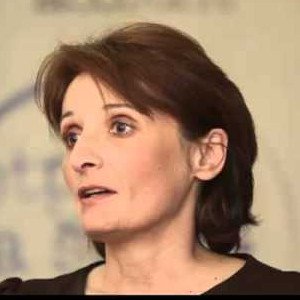Višnja Marilović (Bosnia-Herzegovina)
2016 SPECIAL RECOGNITION AWARD
Photo: Višnja Marilović
After years of service with the public company Skenderija Centre in her native Bosnia, Višnja Marilović blew the whistle on suspected financial irregularities.
In 2011, while working as an accountant with the Centre, Marilović reported irregularities in expense reports submitted by the director of the Centre, Saud Dzindo.
Dzindo had submitted an invoice for 160 beds (an irregular order for a sports centre). Dzindo had, however, recently purchased a hotel. Suspicious, Marilović confronted her superior. After nothing was done, Marilović contacted her Cantonal Prosecutor’s Office, leading to months of death threats and abuse directed at Marilović, and eventually to her dismissal.
Skenderija is a state-owned sports and cultural centre, which was responsible for the marketing and promotion of sport and the country’s cultural/historical strengths — two of the country’s biggest assets. The Centre had significant public appeal and relevance, and its marketing and promotions functions were of particular national importance because of the country’s economically moribund environment and high unemployment rate.
Following her report to the Prosecutor’s Office, Marilović was dismissed from her employment with the Skenderija Centre. Before her dismissal, Marilović faced harassment, constant surveillance and sustained reprisals in her work environment. Marilović described that her employer “worked on creating a hostile work environment” for her while many colleagues “completely distanced themselves” from her.
At the time of her dismissal, Bosnia-Herzegovina had no active whistleblower protection law. As a result, Marilović had no protection against the reprisals and abuse directed at her by her superiors. Since her dismissal, in part due to her own efforts, Bosnia-Herzegovina enacted the Law on Whistleblower Protection in the Institutions of Bosnia-Herzegovina. Furthermore, as a result of Marilović’s whistleblowing, in January 2015 a cantonal court indicted Marilović’s superior, Saud Dzindo, with economic crimes valued over USD$750,000.
In April 2016 a court of first instance found Dzinko guilty of these charges. He was sentenced to just two years probation. The Prosecution intends to appeal this penalty.
As a result of her disclosures, Marilović lived a life under constant siege of threats and intimidation. Marilović said her son did not understand why he could not play on the playground after school the way other children did — she had to take him home and be inside because it was too dangerous to him to play outside for fear of retribution. She continues to receive threats and lives under police protection.
Marilović’s case is one of many South-Eastern European cases, that have sparked the call for further whistleblower protection laws. Serbia and Bosnia are two countries that have very recently introduced whistleblower protection laws.
The region itself has long been mired in corruption and the increasing number of whistleblowers coming forward is a sign that the people of these countries no longer want to tolerate this way of doing business. Marilović’s case has an important public interest element in its own right, but it is also a ‘lighthouse’ for other whistleblowers and thus contributes powerfully to positive change.
Marilović is a role-model; she continues to be involved with numerous organisations concerned with whistleblowing. Marilović is now a prominent advocate for whistleblower protection in Bosnia, having been involved in the drafting of Bosnia-Herzegovina’s Law on Whistleblower Protection in the Institutions of Bosnia-Herzegovina, as well as being the head of the Bosnian Whistleblower’s Association and involved with the Center for Responsible Democracy LUNA.

